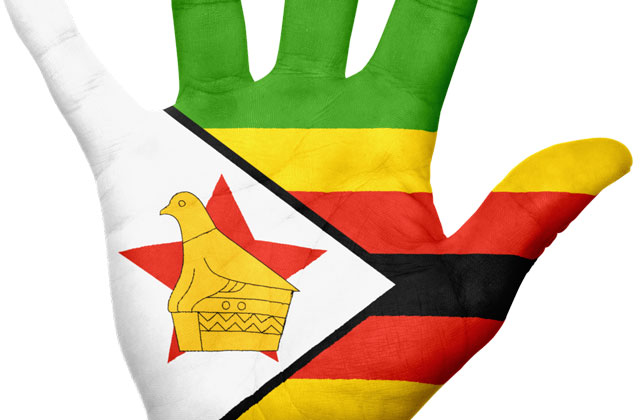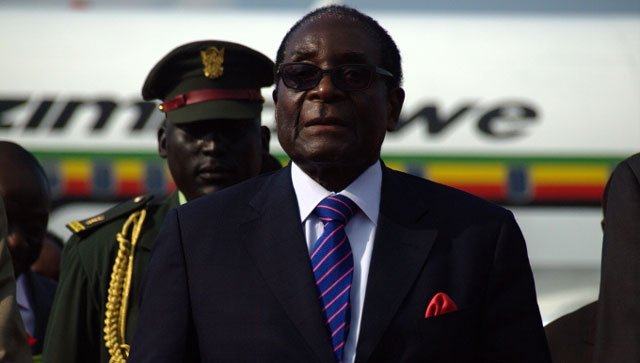
Zimbabwe’s crippling cash shortage has left a black hole in the financial system that’s crushing the rest of the economy.
“We deposit the cash and it becomes theoretical, ephemeral,” Mohamed Salam, who owns several small stores selling building supplies in Harare, the capital, said in an interview.
“My bank balance says it’s there, but it isn’t. I can make payments electronically to local suppliers, but I can’t pay foreign suppliers.”
The liquidity squeeze has left companies unable to pay their workers in cash and foreign suppliers, driving many out of business, and added to the ranks of more than 3m people who’ve become economic exiles. The economy probably shrank 0,3% last year and is set to contract 2,5% this year, according to the International Monetary Fund.
Zimbabwe abandoned its own currency eight years ago and adopted mainly the dollar, initially halting hyperinflation. Now, with a floundering economy and a strong dollar stoking imports and curtailing exports, banknotes have virtually disappeared, prompting the central bank to order private lenders to cap customer cash withdrawals at US$150/week.
While the Reserve Bank estimates about $4bn is circulating in the economy, Confederation of Zimbabwe Industries president Busisa Moyo says the amount may be as little as $100m.
“The economy is in what could turn into a death spiral,” Steve Hanke, a professor of applied economics at Johns Hopkins University in Baltimore who studied the advent of hyperinflation in Zimbabwe, said in an e-mailed response to questions. He blamed the government of President Robert Mugabe, 92, for being “so incompetent and corrupt and prone to making bad economic policies”.
A dearth of foreign exchange forced Brewer Delta, partly owned by Anheuser-Busch InBev, and telecommunications company Econet Wireless Zimbabwe, the nation’s two biggest businesses, to suspend dividends and halt payments to foreign suppliers late last year. Both companies said they don’t foresee any operational disruptions. Econet shareholders agreed to a company plan to raise $130m in foreign currency.
A number of retailers and other businesses are offering big discounts to cash-paying customers and limit the amounts they can charge on credit cards or refuse to accept them altogether.
“The country has run out of money and we have completely lost the ability to pay for imports,” said John Robertson, an independent economist in Harare. “This comes against a backdrop of falling productivity as companies fail to access vital inputs because there’s no foreign currency to pay for them. As long as government continues to do things that discourage both local and foreign investment into the productive sector, the situation can only get worse.”
The economy has halved in size since 2000, when militants backed by Mugabe seized white-owned farms, crippling agricultural output and exports. The government also deterred investment by enacting laws aimed at forcing some companies operating in the country to have majority black ownership and issuing conflicting messages on how they will be implemented.

Officials at CBZ Holdings and the Zimbabwean units of London-based Barclays and Standard Chartered, the nation’s three largest lenders, said no one was available to respond to questions on the cash crisis.
In a bid to ease the banknote shortage and discourage cash hoarding, the government began distributing so-called bond notes in November, with about $88m of the dollar-linked securities issued so far out of a planned $200m that are backed by a loan from the African Export-Import Bank. While banks and most large retailers accept the proxy currency, many small stores, informal traders and taxi drivers won’t, or price them at as little as 70% of their dollar face value.
Economic distortions
Hanke, who’s also director of the Troubled Currencies Project at the Washington, DC-based Cato Institute, said the decision to issue the bond notes was a disaster.
“Zimbabwe is no longer a pure dollarised system, but a mixed system, one that is bound to fail,” he said. “More bond notes will only add fuel to the demand for hoarding of what is viewed as being the superior currency and store of value in Zimbabwe, the US dollar. As the issuance of bond notes increases in response to the hoarding frenzy, the premium on dollar notes to bond notes will widen and so will the distortions in the economy.” — (c) 2017 Bloomberg LP
- Reported with assistance from Desmond Kumbuka

